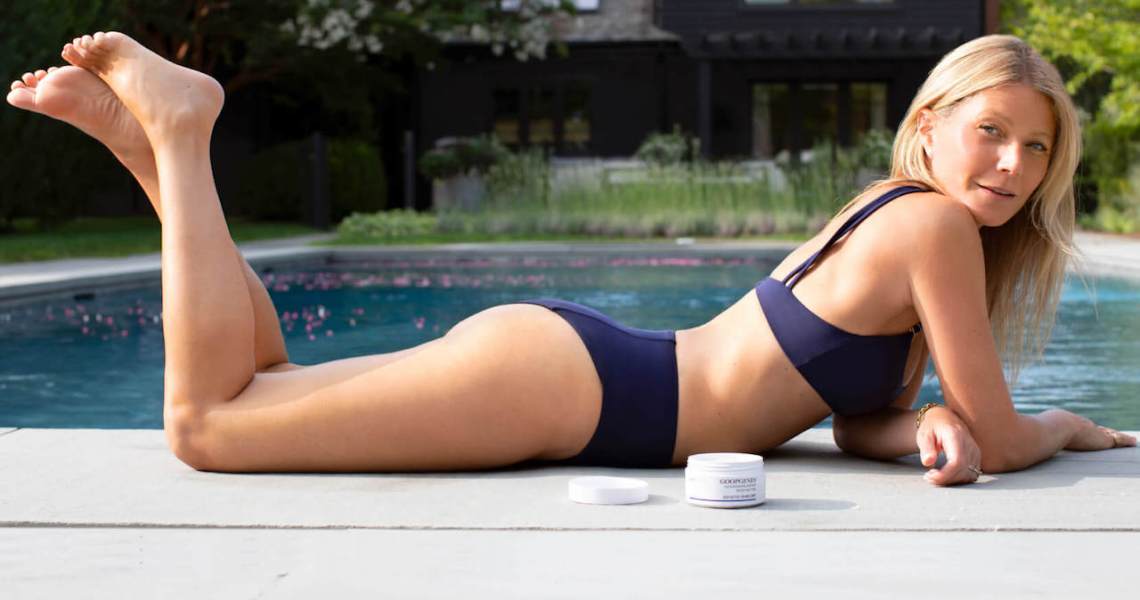With beauty retailers stocking more body care, facial skin-care brands launching body products and the rise of body-care startups, body care is the latest personal care category being given the beauty treatment.
As a result, body products are being marketed not just from a self-care angle, but from a skin-care point of view, touting performance-based ingredients and results. According to NPD Group, body serum sales grew 32% in the first quarter of 2020, and body oil grew by 10%. And as the pandemic took hold in the second quarter, body exfoliator sales increased 15%.
A growing number of facial skin-care brands have been getting into body care: Drunk Elephant introduced its first body-care line in April 2020, while Augustinus Bader has been adding new products to its body-care lineup that first launched in June 2019. Other brands bringing a skin-care focus to body include Indie Lee, Goop and Paula’s Choice, as well as body-care startups like Nécessaire, Esker and Bathing Culture.
One of the pioneers of the body-care-as-skin-care shift has been Goop, which helped to popularize practices such as dry brushing. It has been adding new body products to its in-house skin-care line, which features products such as an ashwagandha body wash.
“People think about beauty as just being your head, and it’s definitely not,” said Goop beauty director Jean Godfrey-June. She added that body-care is gaining more attention in the clean beauty category. “It’s a very important category to be clean with, in our estimation.”
Goop launched its latest body-care product on September 27 — a $55 body cream that promises to address issues of skin crepiness and elasticity. The product was timed to launch on Goop founder Gwyneth Paltrow’s 48th birthday and was promoted with a photo of Paltrow in her “birthday suit” on Instagram. The image subsequently went viral.
Body care has been increasingly branching into new product categories popularized by the facial skin-care category. Following in the footsteps of early brands with cult body oils recommended for pregnancy stretch marks including Clarins and Bio-Oil, body oils are now widely available from a range of brands.
Ad position: web_incontent_pos1
“Face oils and body oils really were the start of the clean beauty movement,” said Godfrey-June, who noticed body oil taking off as a category five years ago. Body serums are also on the rise, with brands including Moroccanoil, Clé de Peau Beauté and Vichy among those offering them.
A wider assortment of skin-care ingredients are finding their way into body products: Vichy’s body serum, for example, boasts facial skin-care staple hyaluronic acid, while Paula’s Choice sells a 2% BHA body treatment.
“Benefits will become more and more important,” said Godfrey-June. “As with face products, they’ll start to mirror those even more.”
The shift from body care into beauty is part of a wider trend of more personal care categories being embraced by the beauty world. Beauty retailers like Sephora and Ulta are stocking more personal care staples like deodorant and toothpaste.
Consumer spending on body care has also benefited from the self-care effect during the pandemic, with shoppers upgrading their body-care products and lengthening their beauty routines.
Ad position: web_incontent_pos2
“Self-care is the new mantra since Covid-19; more people look for multi-functional health and wellness benefits for the body and mind,” said David Tyrrell, the associate director of global skin care at Mintel. “The younger consumers [36% of the U.S. are Gen Z, ages 18-25] are spending more time on their personal care routines, which includes taking long baths and adding steps to [their] skin-care routines.”
“Our marketing and our messaging to consumers is around education, about what our products lead with and how can you take our products and create a ritual,” said Melissa Ayers, the vp of marketing at body-care brand J.R. Watkins, which is among the body-care offerings sold at Ulta. It has doubled down on self-care with a focus on aromatherapy ingredients such as bergamont and coriander.
Beauty brands are also hoping that consumers will upgrade their spending in new personal care categories, investing in higher price points for body care as they have done for skin care.
“We used to be able to have all these ways of treating ourselves when we were out and about in the world,” said Godfrey-June of life pre-pandemic. “And now we’re not.” According to her, spending on self-care products during this time is based on the mindset that, “I feel like I’m giving myself a little moment of luxury that I used to give to myself in other ways.”




